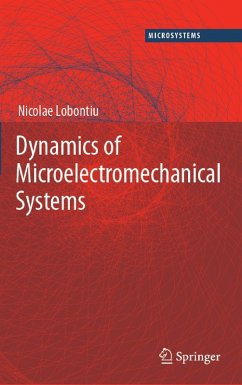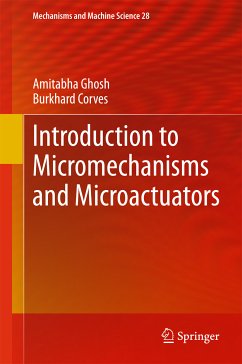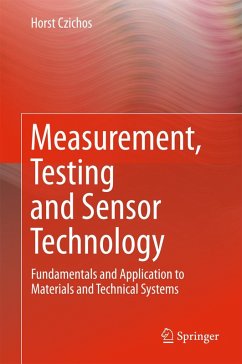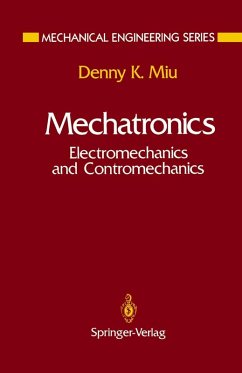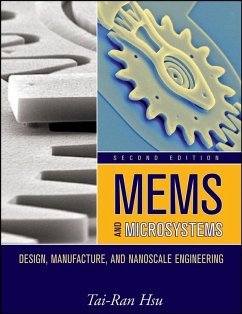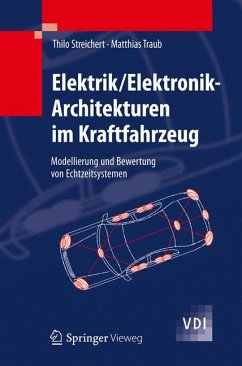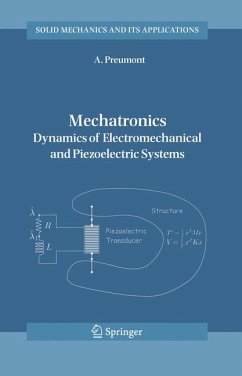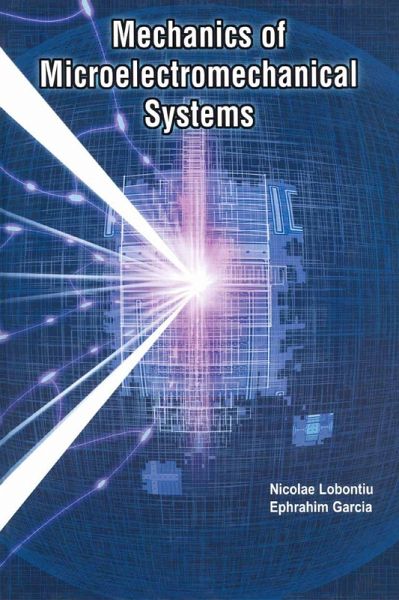
Mechanics of Microelectromechanical Systems (eBook, PDF)
Versandkostenfrei!
Sofort per Download lieferbar
72,95 €
inkl. MwSt.
Weitere Ausgaben:

PAYBACK Punkte
36 °P sammeln!
This book offers a comprehensive coverage to the mechanics of microelectromechanical systems (MEMS), which are analyzed from a mechanical engineer's viewpoint as devices that transform an input form of energy, such as thermal, electrostatic, electromagnetic or optical, into output mechanical motion (in the case of actuation) or that can operate with the reversed functionality (as in sensors) and convert an external stimulus, such as mechanical motion, into (generally) electric energy. The impetus of this proposal stems from the perception that such an approach might contribute to a more solid ...
This book offers a comprehensive coverage to the mechanics of microelectromechanical systems (MEMS), which are analyzed from a mechanical engineer's viewpoint as devices that transform an input form of energy, such as thermal, electrostatic, electromagnetic or optical, into output mechanical motion (in the case of actuation) or that can operate with the reversed functionality (as in sensors) and convert an external stimulus, such as mechanical motion, into (generally) electric energy. The impetus of this proposal stems from the perception that such an approach might contribute to a more solid understanding of the principles governing the mechanics of MEMS, and would hopefully enhance the efficiency of modeling and designing reliable and desirably-optimized microsystems. The work represents an attempt at both extending and deepening the mechanical-based approach to MEMS in the static domain by providing simple, yet reliable tools that are applicable to micromechanism design through current fabrication technologies. Lumped-parameter stiffness and compliance properties of flexible components are derived both analytically (as closed-form solutions) and as simplified (engineering) formulas. Also studied are the principal means of actuation/sensing and their integration into the overall microsystem. Various examples of MEMS are studied in order to better illustrate the presentation of the different modeling principles and algorithms. Through its objective, approach and scope, this book offers a novel and systematic insight into the MEMS domain and complements existing work in the literature addressing part of the material developed herein.
Dieser Download kann aus rechtlichen Gründen nur mit Rechnungsadresse in A, B, BG, CY, CZ, D, DK, EW, E, FIN, F, GR, HR, H, IRL, I, LT, L, LR, M, NL, PL, P, R, S, SLO, SK ausgeliefert werden.



